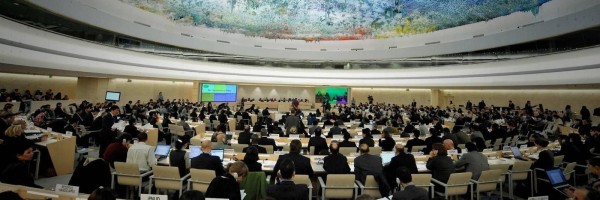On 14 March 2022, Conservative MP Crispin Blunt tabled an urgent question in the British parliament asking the government to make a statement on the executions of 81 individuals in Saudi Arabia on 12 March. MPs also questioned whether Prime Minister Boris Johnson’s visit to Saudi Arabia on 16 March should go ahead, and called on the government to do more to stop Saudi Arabia’s human rights violations, including by ending arms sales to Riyadh and ceasing UK-Saudi judicial cooperation.
Responding to Blunt’s question, Minister for Asia and the Middle East Amanda Milling said the government was “shocked” by the mass execution, and that the UK “strongly opposes the death penalty in all countries and in all circumstances, as a matter of principle.” She added that she would not “speculate in terms of the Prime Minister’s visits”.
There was a general consensus among MPs during the ensuing debate that rather than having a positive bearing on the human rights situation, the UK government’s policy stance towards Saudi Arabia gives diplomatic cover for the Saudi authorities to continue to carry out grave abuses.
Labour MP and Shadow Minister for the Middle East Bambos Charalambous queried whether the Prime Minister would be “expressing Parliament’s outrage” at the executions in his upcoming meeting with Crown Prince Mohammed bin Salman and seeking assurances that such mass executions would never happen again. Democratic Unionist Party (DUP) MP Jim Shannon asked whether Milling had made representations to her Saudi counterparts to review the rationale behind the mass execution.
Scottish National Party (SNP) MP Alyn Smith argued that the Prime Minister should not visit Saudi Arabia, and that the UK should end or at least suspend its current judicial and justice cooperation with Saudi Arabia, given Parliament’s deep concern over the executions. Liberal Democrat MP Alistair Carmichael asked if the government would publish the UK’s judicial cooperation memorandum of understanding with Saudi Arabia and the related human rights risk assessment. Labour MP Dame Diana Johnson asked what recent discussions the government had had with the Saudi authorities about the well known failings of the Saudi justice system, and about the cases of those who are in jail for trying to exercise their fundamental human rights.
Some MPs raised individual death penalty cases and the issue of juvenile executions. Labour MP Hilary Benn raised the case of Mustafa al-Darwish, executed last year for crimes he allegedly committed as a minor, and asked Milling if she would now frankly say to Parliament that the Saudi government’s 2018 promise to the United Nations not to execute children was not made in good faith. Labour MP Andy Slaughter also raised the case of Abdullah al-Huwaiti, who was recently re-sentenced to death for offences allegedly committed when he was only 14.
Labour MP Nadia Whittome reminded Parliament of the ongoing war in Yemen, and urged the government to “do what they should have done long ago and end arms sales to the Saudi regime”. Green MP Caroline Lucas questioned the rationale of replacing fossil fuels from Putin’s Russia by turning to another autocratic ruler, “who executes his own people” and to whom the UK sells weapons “being used to kill civilians in Yemen”.
Other MPs questioned UK policy towards Saudi Arabia more broadly. SNP MP Brendan O’Hara asked whether the time had come for the UK to reset its relationship with states like Saudi Arabia that “trample over human rights with impunity”. Labour MP Tanmanjeet Singh Dhesi suggested that the Saudi authorities see the current UK government as a soft touch; and Labour MP Jeff Smith asked Milling to provide one single example of the impact or effect of the “frank discussions” the government claims it has with Saudi Arabia.
Throughout the parliamentary debate government minister Milling repeated her main points, including the claim that the nature of the UK’s relationship with Saudi Arabia allows the government to “speak freely” with Saudi counterparts about human rights, and that the UK will continue to raise human rights issues through ministerial and diplomatic channels.
ALQST would like to thank all MPs who spoke in the debate on Monday, and especially Crispin Blunt, who tabled the urgent question.




